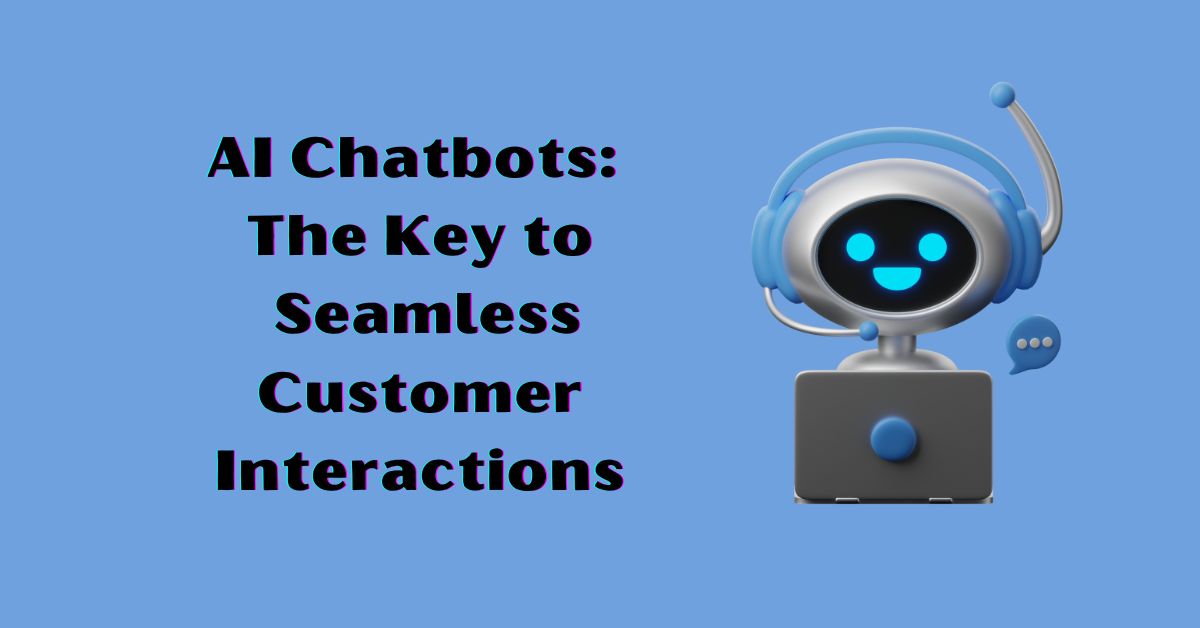Businesses need to respond quickly and personally to customer inquiries. Customer service has evolved from face-to-face interactions to phone calls, emails, and now digital platforms. Chatbots are at the forefront of this change, providing instant support and saving time for both businesses and customers.
This blog will look at how AI chatbots have altered customer service, their advantages, real-world applications, and more.
What Are AI Chatbots?
AI Chatbots are advanced software that simulate human conversation through text or voice. They use natural language processing (NLP) to interpret and respond to user questions in a personalized way.
These chatbots are widely used in various online environments, such as customer service and sales. Over time, they’ve evolved from basic tools to more sophisticated systems that interact with users in a remarkably human-like manner.
With 83% of decision-makers planning to boost their technology investment next year, it’s clear that chatbots are becoming an integral part of modern digital interactions.
The Impact of Chatbots on Customer Service
Chatbots have significantly transformed customer service by offering round-the-clock support, ensuring customers can receive assistance whenever they need it. This constant availability reduces wait times, as chatbots can handle multiple inquiries simultaneously.
In addition to being available 24/7, chatbots provide consistent and accurate information, enhancing the overall customer experience. This consistency is particularly valuable for addressing common questions and issues, allowing businesses to offer quick and reliable service.
Furthermore, chatbots guide users through troubleshooting and navigating websites, making it easier for customers to resolve problems on their own. They also collect feedback during interactions, helping businesses identify and address common pain points.
Overall, chatbots enhance efficiency in customer service, leading to higher customer satisfaction and loyalty.
How AI Chatbots Improve Customer Interactions
Chatbots are vital tools for enhancing customer service in the digital age we live in. These AI-powered assistants answer questions, offer support, and improve the overall consumer experience.
1. Instant Responses or 24/7 Availability
AI chatbots provide instant responses to customer inquiries 24/7. They are accessible round-the-clock to make sure no one has to wait.
2. Personalization
AI allows chatbots to modify responses depending on client data and previous interactions. This individualized approach makes clients feel valued, which improves the whole experience.
3. Multichannel Support
AI chatbots work smoothly with platforms such as WhatsApp, Facebook Messenger, and more. This means that clients may contact us through their preferred channel and receive a consistent, seamless experience.
4. Efficient query resolution
AI chatbots can manage several requests at once, resulting in speedy resolution without burdening human operators. This speeds up the customer support process and keeps interactions smooth.
5. Consistent Responses
Unlike human agents, who can fluctuate in their response time, AI chatbots provide consistent, accurate replies every time. This guarantees that clients receive trustworthy information during each engagement.
6. Language Flexibility.
Many AI chatbots are multilingual, which enables firms to reach a worldwide audience. Customers can interact in their favorite language, making communication easier and more natural.
7. Cost-effective
AI chatbots enable organizations to scale their customer support without the need for more employees. They manage a large number of interactions efficiently, lowering operational expenses while maintaining good service quality.
Real-world applications of AI Chatbots
1. AI Chatbots in E-commerce: Personalized Shopping Experiences.
In e-commerce, AI chatbots are changing the way customers shop. Consider this: you visit an online store, and a chatbot appears, asking if you need assistance finding something. It understands your tastes based on previous purchases, recommends things you might like, allows you to compare costs, and even records your order. Brands such as H&M and Sephora use chatbots to deliver personalized recommendations, resulting in a more engaging and efficient shopping experience.
2. AI Chatbots for Healthcare: Patient Assistance and Appointment Scheduling
AI chatbots have a significant impact on healthcare. Imagine you need to book a doctor’s appointment but the office is closed. Not a problem—an AI chatbot is available to assist. It allows people to schedule appointments, receive prescription reminders, and even ask basic medical questions. Companies like Babylon Health employ chatbots to provide virtual consultations, guiding patients based on their symptoms and offering advice without leaving their homes.
3.AI chatbots for banking services: financial guidance and fraud detection.
In finance, AI chatbots can tackle anything from balance inquiries to fraud alerts. For example, if you ask the chatbot about your expenditure practices, it will analyze your transactions and offer financial recommendations. Bank of America’s Erica is an excellent example, allowing customers to track spending, make transactions, and detect suspicious activity. Chatbots also help in identifying fraud by alerting customers to any unusual transactions.
4. AI Chatbots for Travel: Booking and Trip Management
When scheduling a journey, AI chatbots handle the details. Travel firms such as KLM Royal Dutch Airlines employ chatbots to help consumers book tickets, check-in, and manage routes. Chatbots also provide flight updates, keeping passengers updated throughout their journey.
5. AI Chatbots in Customer Support: Providing 24/7 Assistance.
Chatbots provide 24/7 customer support in many businesses, including telecommunications and retail. Organizations like AT&T and H&M use chatbots to handle customer issues, answer product-related queries, and guide customers in solving problems. This allows companies to serve customers more efficiently without workload on human support teams.
Conclusion
As we move further into the digital age, AI chatbots are not just tools—they are the future of customer engagement. By offering instant responses, personalized support, and consistent service, chatbots are transforming industries and setting new standards for customer satisfaction.
From e-commerce and healthcare to banking and travel, chatbots streamline processes, enhance customer experiences, and reduce operational costs. As technology continues to advance, the role of chatbots in customer service will only grow, making them a crucial component of successful engagement strategies.
FAQs
Q1: Which industries benefit most from chatbots?
E-commerce, healthcare, finance, real estate, and travel are key sectors that gain from chatbots due to their high interaction demands.
Q2: Do chatbots replace human customer service agents?
Chatbots handle routine tasks but human agents are still needed for complex or sensitive issues.
Q3: How do chatbots manage complex queries?
Advanced chatbots learn from interactions and can escalate complex issues to human agents when necessary.
Q4: Can small businesses use chatbots?
Yes, chatbots are versatile and cost-effective, making them suitable for businesses of all sizes.
Q5: How can I measure my chatbot’s success?
Monitor customer satisfaction, response times, engagement levels, and accuracy to assess your chatbot’s effectiveness.


Leave a Reply